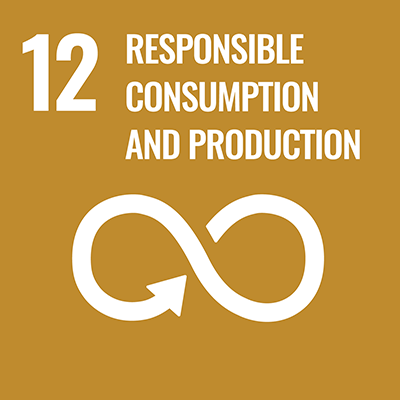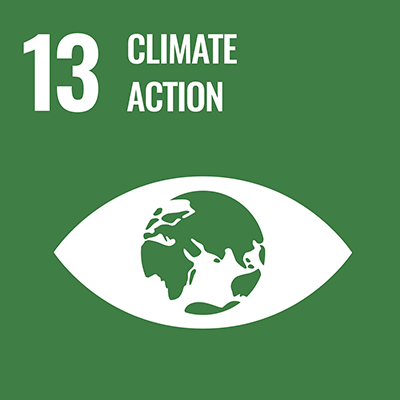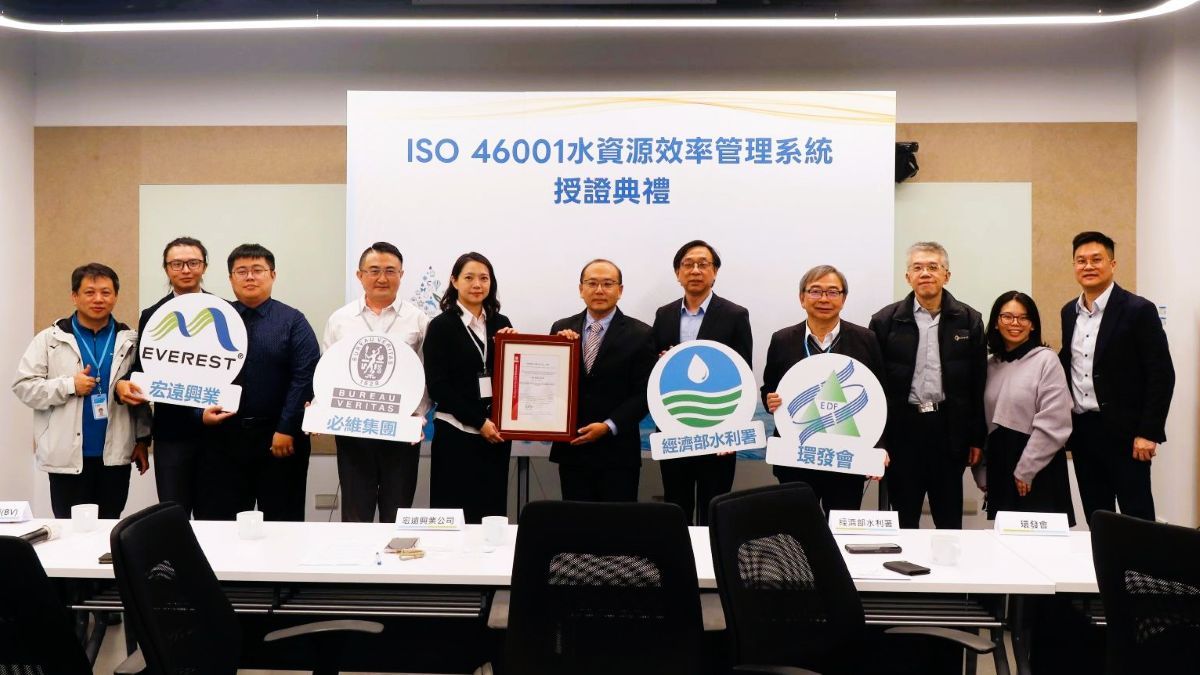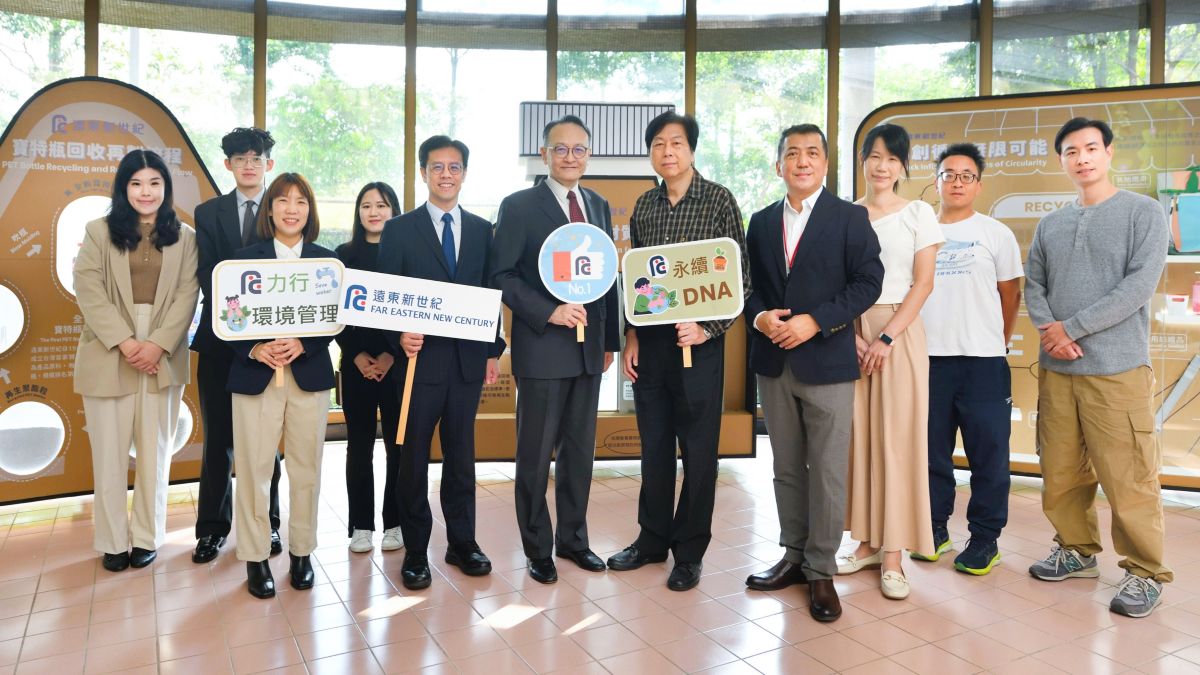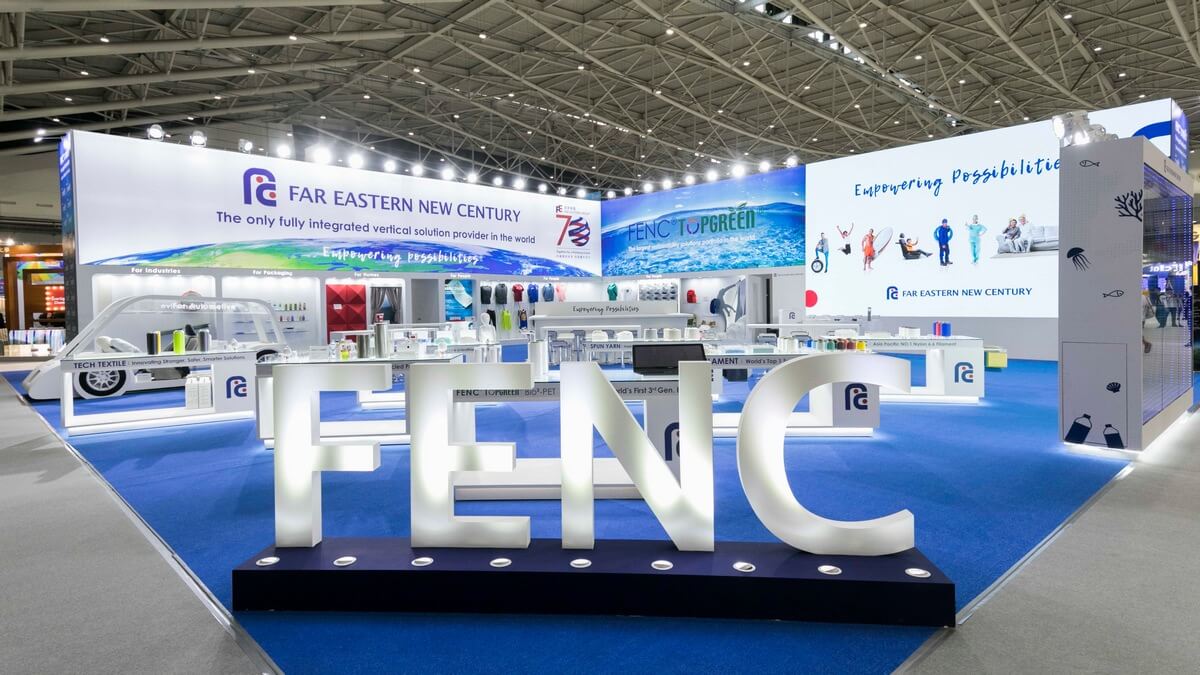How can a loss making PET bottle recycling plant transform to a golden goose?
As you drive into the factory premises of FENC's subsidiary, OGML (Oriental Green Materials Ltd.), located in Guanyin, Taoyuan, the sight that greets you is a vast expanse filled with square-footed, 400-kilogram PET bottle bricks stacked together, reminiscent of LEGO building blocks. (Photo credit: Wang, Chien-Dong)
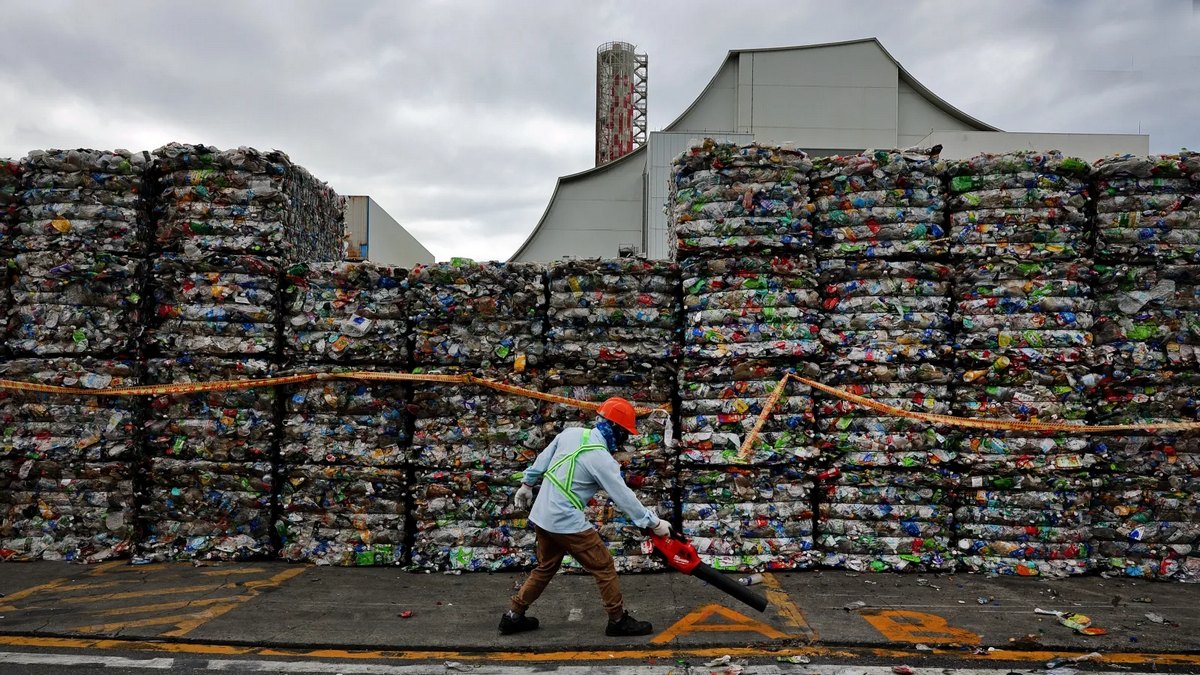
This 8,000-square-meter factory site may resemble a typical recycling facility at first glance, but it conceals a key force driving FENC's green transformation and profitability enhancement.
Taiwan consumes approximately 5 billion PET bottles each year, weighing a total of 100,000 metric tons. This amount is enough to fill 1,200 Olympic-sized swimming pools. Half of these bottles find their way into OGML's recycling production line, where they are crushed, cleaned, and transformed into recycled polyester pellets known as "rPET," which serve as raw materials for producing recycled PET bottles and eco-friendly clothing.
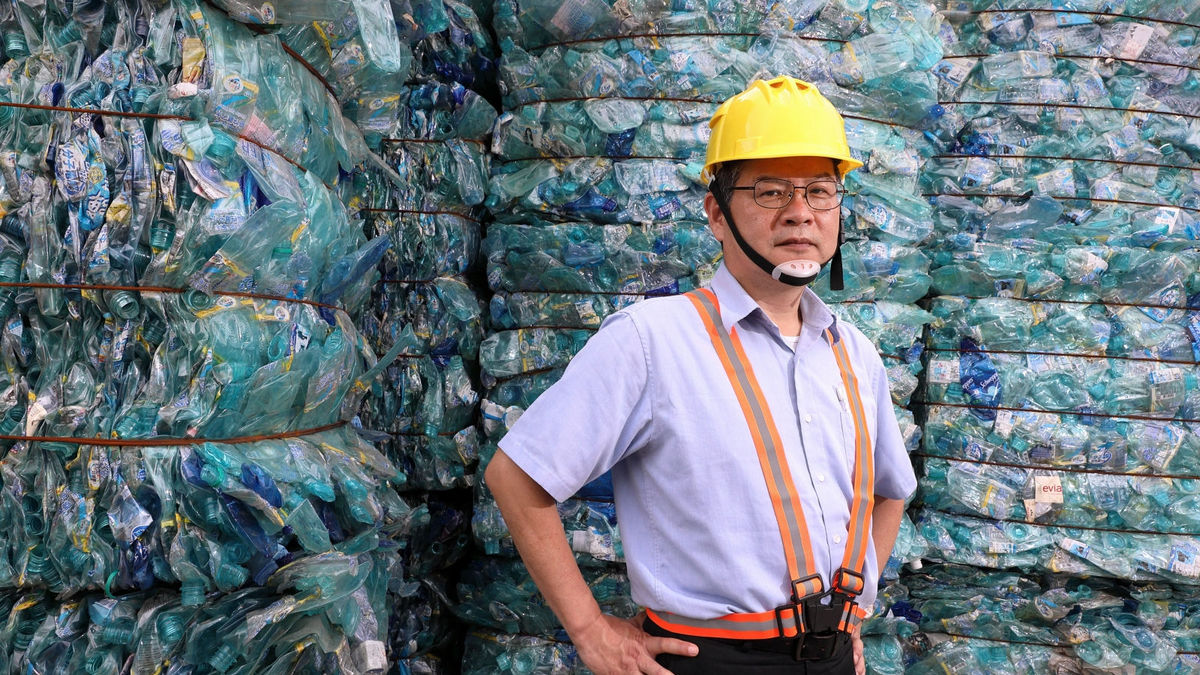
"Recycling has now become a lucrative business," said C.T. Peng, the President of OGML, with a smile. The carbon footprint of rPET is around 40% lower than that of virgin materials. As a result, major beverage companies like Coca-Cola and Nestlé, as well as sports brands like Nike and Adidas, and even companies like LEGO and IKEA, are eagerly using rPET as a way to achieve their carbon reduction goals for PET bottles and product materials.
The strong demand and supply situation, coupled with the addition of a pelletizing production line in 2021, led to OGML's revenue reaching 2.45 billion New Taiwan Dollars, representing an annual growth rate of nearly 80%. Currently, 20% of FENC's revenue comes from green products, with OGML playing a crucial role in this achievement.
【Company Profile】Oriental Green Materials Ltd.
2023 Fast100 Ranking/39
Establishment Year/1988
Chairman/Donald Fan
President/C.T. Peng
Core business/PET bottle recycle and remake to chips
2020-2022 compound growth/48.09%
Business Strength/Continuous research in recycle technology, focusing in high value products; building checking mechanism to earn trust from customers.
Once lost all equity, the old factory was transformed and reborn
However, the promising future of OGML was not always smooth sailing. In fact, it experienced more than 20 years of losses and was once a hot potato discarded by its original shareholders.
In 1988, FEG, Shin Kong, and Hei Sung jointly established "Taiwan Recycling," the predecessor of OGML, which was the first PET bottle recycling factory in Taiwan. Due to the immaturity of both technology and the market, it sustained continuous losses and almost depleted its capital in 2007. Other shareholders were unwilling to inject additional funds, and it was then acquired as a wholly-owned subsidiary by FENC.
Initially, the recycled bottle flakes produced by OGML had mixed colors and low strength, which could only be used to produce low-value stable fibers for carpets and doll fillings. After being taken over by FENC, the decision was made to shift towards high-quality filament and food-grade rPET, which had higher technical requirements and market value.
With the support of its parent company, OGML invested in advanced infrared detection equipment to replace manual sorting. It also made necessary modifications to its existing production lines to meet the testing requirements for food-grade rPET, ensuring the safety and quality of the recycled materials.
"For example, if a farmer collects PET bottles that were previously used for pesticide storage and throws them into the recycling system, how can we ensure safety?" Peng gave an example. When OGML conducts FDA food-grade rPET testing, the waste PET bottles are soaked in eight different chemical agents for two weeks. The residual chemicals in the resulting rPET must be below 200 ppb (parts per billion) to pass the test.
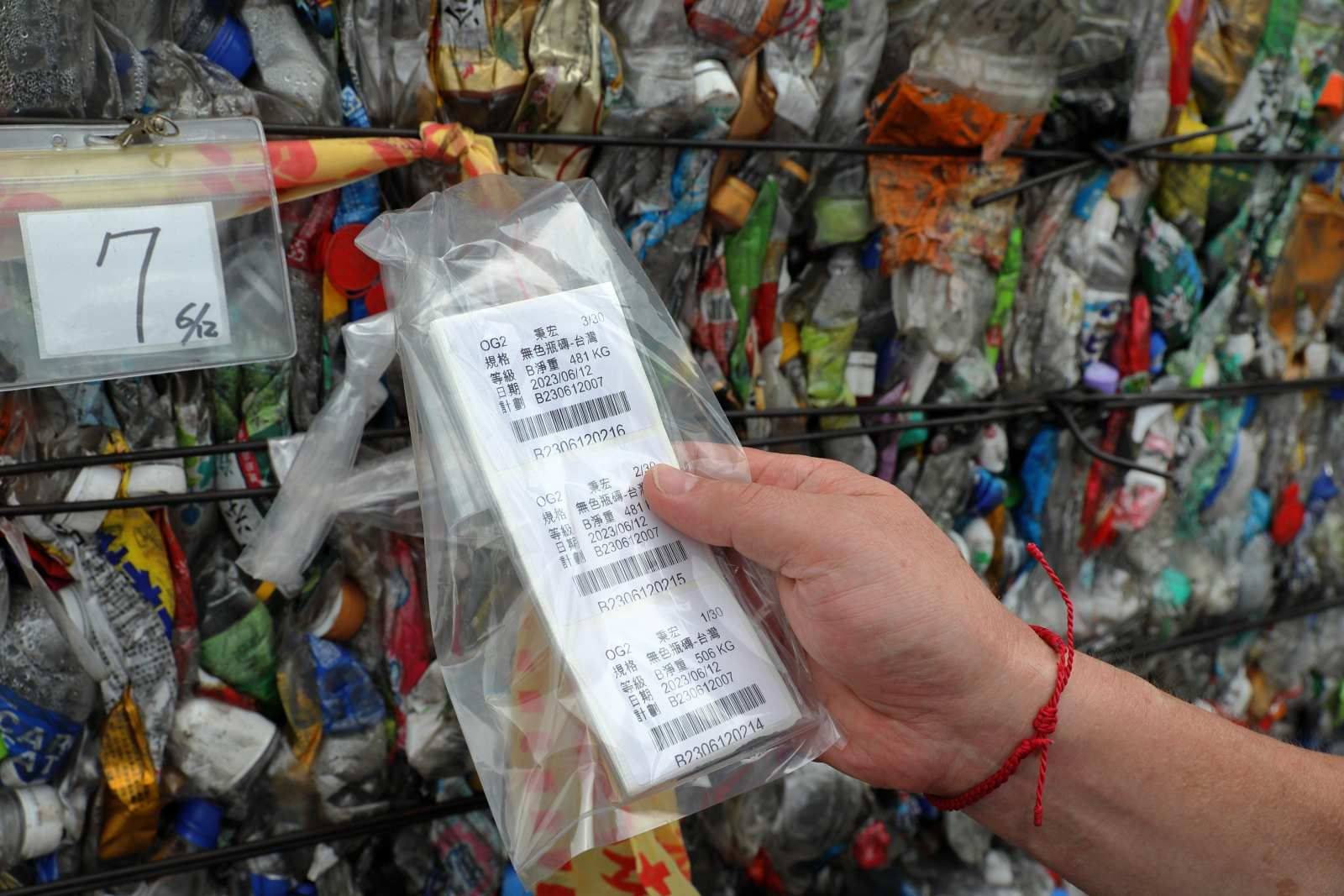
Brand customers would only purchase recycled materials with the trust which comes from the source control. (Photo credit: Wang, Chien-Dong)
In addition, OGML has developed a traceability system where each brick of bottle flakes is labeled with a barcode before entering the factory. The composition of the recycled materials is also slightly adjusted each year. When brand customers conduct product inspections, they can trace the origins of the waste PET bottles and the production timeline of the rPET through the barcodes and laboratory test results.
"Trust is essential when purchasing recycled materials by a brand customer , but trust must be based on certain criterias," explained Peng. The quality of recycled materials is comparable to that of virgin materials, but they come with higher costs. The selling price is also 30% to 50% higher than that of virgin materials. The criterias for establishing trust is to allow brands to conduct inspections, ensuring transparency and reliability.
Demand emerges, Company breakeven and expands productions
Around 2010, as the demand for rPET began to grow with the carbon reduction trend, OGML expanded its production scale. With economies of scale, the unit cost of production was reduced by half, allowing the company to turn losses into profits. While the capacity still focused on supplying FENC, international orders started pouring in as well.
Peng foresaw the impending surge in demand and decided to invest nearly NT$800 million in establishing the second plant in Datan, Taoyuan, in 2014. The recycling production line was continuously improved to eliminate bottlenecks, and now the company has an annual PET bottle recycling capacity of 60,000 tons.
To further enhance the value of its products, OGML installed a pelletizing line in the new plant two years ago, enabling direct production of rPET pellets. This became a significant factor in the company's substantial revenue growth last year. When asked about the gross profit of rPET, Peng smiled but provided a set of numbers, stating, "Revenue from rPET accounts for about 25% of FENC's Polyester Division, but its profit represents over 40%," indicating that the profit margin of recycled materials far exceeds that of virgin materials in their core business.
The benefits of rPET go beyond its high gross profit. A manager from a major chemical fiber company observed that there is a supply-demand imbalance in the global market for recycled materials, while the market for virgin materials has become highly competitive. Therefore, FENC has been bundling sales of recycled and virgin materials, allowing its core virgin material business to remain strong in the fiercely competitive market.
Moving forward, due to the fluctuating availability of waste PET bottle raw materials throughout the year, OGML plans to expand the storage space in the second plant to ensure sufficient brick materials are stockpiled during the summer season. This will enable the production line to operate smoothly year-round.
The next step in recycling: textiles
As PET bottle recycling gradually gains momentum, the next challenge for OGML and FENC is to recycle textiles such as clothing and towels into rPET.
Peng admitted that, unlike the relatively simple composition of PET bottles, textiles are composed of various blended materials. The process of chemical recycling using solvents to extract impurities is more challenging and costs ten times more than virgin materials.
"With such high costs, it is unlikely that the market will expand. However, we must still pursue this path. Without moving forward, success will never be achieved," Peng pointed out. FENC plans to set up a testing production line in Taiwan with an annual capacity of 1,200 tons specifically for recycling textiles and handling more challenging colored PET bottles. This will continue to advance rPET technology.
Chairman Hsu declared at this year's shareholders' meeting that there will be "no limits" to investments in green products. He also emphasized that the revenue contribution from green products should increase from the current 20% to 40% by 2030. This highlights the group's commitment to green transformation, and the significance of OGML is undeniable.
From being a struggling business to becoming a driving force for transformation, Peng acknowledged that the journey has not been easy, especially in retaining talent. "In the past, it was embarrassing to work in a recycling plant. I wouldn't dare to tell people that I worked at OGML."
Today, along with FENC, OGML has gone from securing its position as a leading player in the Taiwanese industry to expanding overseas. Peng humorously remarked that even in the field of recycling, there is a promising future.
Business and Company
News Type
UN SDG
Share
Download
Source
Translated from CW Magazine #777 Article by Kang, Chen-Kan



